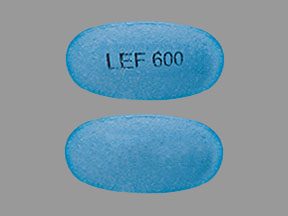Lefamulin Side Effects
Medically reviewed by Drugs.com. Last updated on Feb 25, 2025.
Applies to lefamulin: oral tablet.
Other dosage forms:
Precautions
It is very important that your doctor check your progress at regular visits to make sure that this medicine is working properly. Blood and urine tests may be needed to check for unwanted effects.
Using this medicine while you are pregnant can harm your unborn baby. Use an effective form of birth control to keep from getting pregnant during treatment and for at least 2 days after the last dose. If you think you have become pregnant while using this medicine, tell your doctor right away.
Do not use this medicine if you are also using erythromycin (Ery-Tab®), moxifloxacin (Avelox®), medicine to treat heart rhythm problems (eg, amiodarone, quinidine, procainamide, sotalol, Betapace®, Cordarone®), medicine to treat mental illness (eg, pimozide, Orap®), or tricyclic antidepressants. Using these medicines together with lefamulin may cause unwanted serious side effects.
Contact your doctor right away if you have any changes to your heart rhythm. You might feel dizzy or faint, or you might have a fast, pounding, or uneven heartbeat. Make sure your doctor knows if you or anyone in your family has ever had a heart rhythm problem such as QT prolongation.
Lefamulin may cause diarrhea, and in some cases it can be severe. It may occur 2 months or more after you Stop taking lefamulin. Do not take any medicine to treat diarrhea without checking first with your doctor. Diarrhea medicines may make the diarrhea worse or make it last longer. If you have any questions about this or if mild diarrhea continues or gets worse, check with your doctor.
Do not take other medicines unless they have been discussed with your doctor. This includes prescription or nonprescription (over-the-counter [OTC]) medicines and herbal or vitamin supplements.
Serious side effects of lefamulin
Along with its needed effects, lefamulin may cause some unwanted effects. Although not all of these side effects may occur, if they do occur they may need medical attention.
Check with your doctor immediately if any of the following side effects occur while taking lefamulin:
Less common side effects
- convulsions
- decreased urine
- dry mouth
- increased thirst
- irregular heartbeat
- loss of appetite
- mood changes
- muscle pain or cramps
- nausea or vomiting
- numbness or tingling in the hands, feet, or lips
- trouble breathing
- unusual tiredness or weakness
Incidence not known
- abdominal or stomach tenderness
- chest pain or discomfort
- fainting
- fever
- irregular or slow heart rate
- severe abdominal or stomach cramps and pain
- watery and severe diarrhea, which may also be bloody
Other side effects of lefamulin
Some side effects of lefamulin may occur that usually do not need medical attention. These side effects may go away during treatment as your body adjusts to the medicine. Also, your health care professional may be able to tell you about ways to prevent or reduce some of these side effects.
Check with your health care professional if any of the following side effects continue or are bothersome or if you have any questions about them:
Less common side effects
- headache
- trouble sleeping
See also:
For healthcare professionals
Applies to lefamulin: intravenous solution, oral tablet.
Gastrointestinal adverse events
- Very common (10% or more): Diarrhea (up to 12%)
- Common (1% to 10%): Nausea, vomiting
- Frequency not reported: Abdominal pain, constipation, dyspepsia, epigastric discomfort, erosive gastritis, Clostridium difficile-associated diarrhea, C difficile colitis, oropharyngeal candidiasis[Ref]
Local
- Common (1% to 10%): Administration site reactions (included infusion site pain, infusion site phlebitis, injection site reaction)[Ref]
Hepatic
- Common (1% to 10%): Hepatic enzyme elevation (included increased ALT, increased AST, increased liver function test)
- Frequency not reported: Increased GGT[Ref]
Metabolic
- Common (1% to 10%): Hypokalemia[Ref]
Psychiatric
- Common (1% to 10%): Insomnia
- Frequency not reported: Anxiety[Ref]
Nervous system
- Common (1% to 10%): Headache
- Frequency not reported: Somnolence[Ref]
Other
- Common (1% to 10%): Death within 28 days
- Frequency not reported: Increased alkaline phosphatase[Ref]
Death within 28 days occurred in 1.2% of patients treated with this drug and 1.1% of patients treated with moxifloxacin.[Ref]
Cardiovascular
- Frequency not reported: Atrial fibrillation, palpitations, prolonged QT on ECG[Ref]
Genitourinary
- Frequency not reported: Vulvovaginal candidiasis, urinary retention[Ref]
Hematologic
- Frequency not reported: Anemia, thrombocytopenia[Ref]
Musculoskeletal
- Frequency not reported: Increased creatine phosphokinase[Ref]
References
1. (2019) "Product Information. Xenleta (lefamulin)." Nabriva Therapeutics US, Inc.
More about lefamulin
- Check interactions
- Compare alternatives
- Reviews (1)
- Dosage information
- During pregnancy
- Drug class: miscellaneous antibiotics
- Breastfeeding
Patient resources
- Lefamulin (Intravenous) advanced reading
- Lefamulin (Oral) (Advanced Reading)
- Lefamulin Tablets
- Lefamulin Injection
Other brands
Professional resources
Other brands
Related treatment guides
Further information
Lefamulin side effects can vary depending on the individual. Always consult your healthcare provider to ensure the information displayed on this page applies to your personal circumstances.
Note: Medication side effects may be underreported. If you are experiencing side effects that are not listed, submit a report to the FDA by following this guide.

